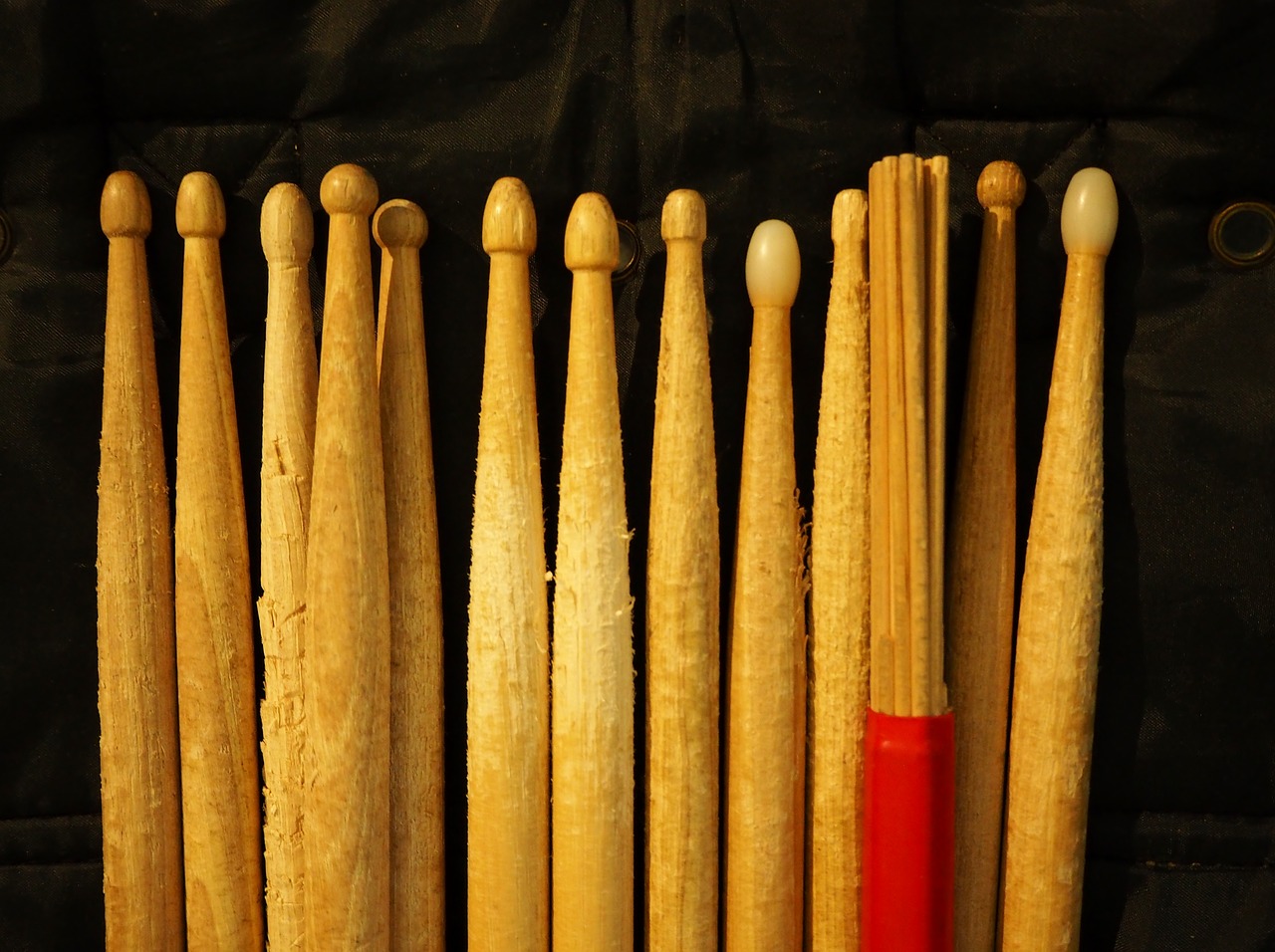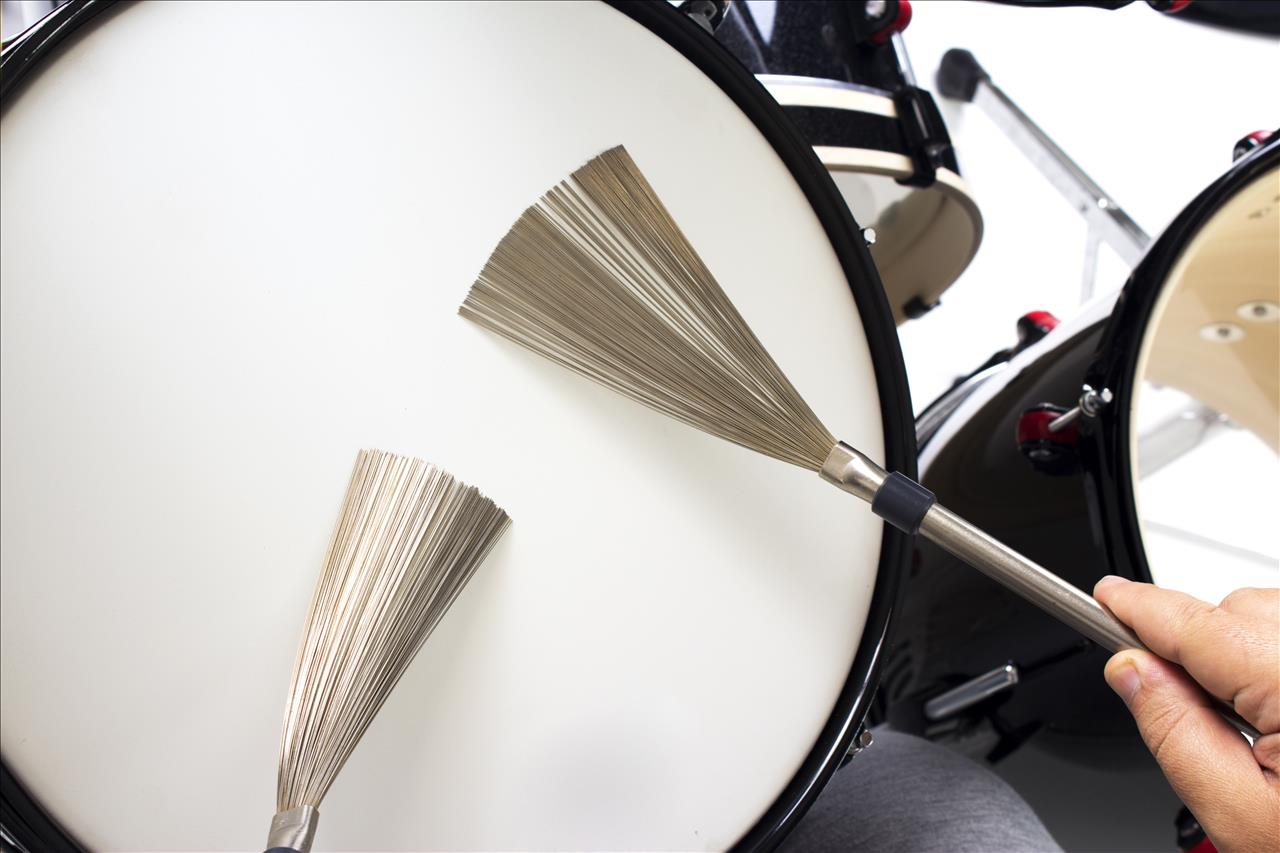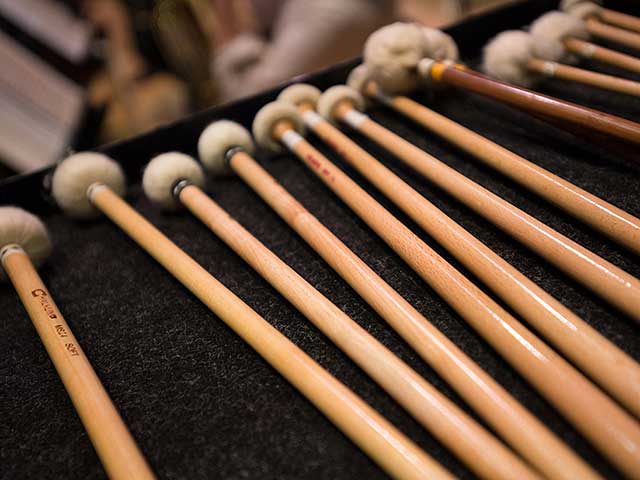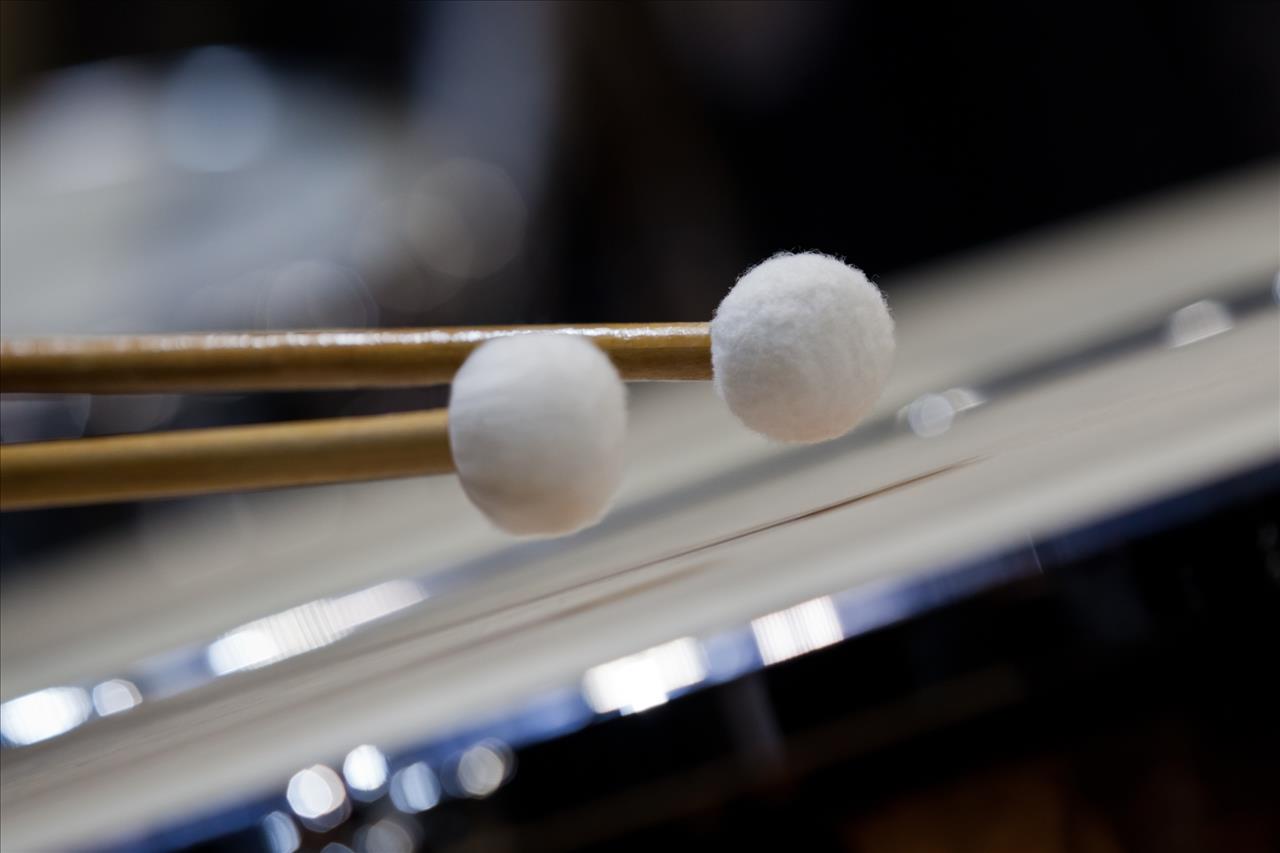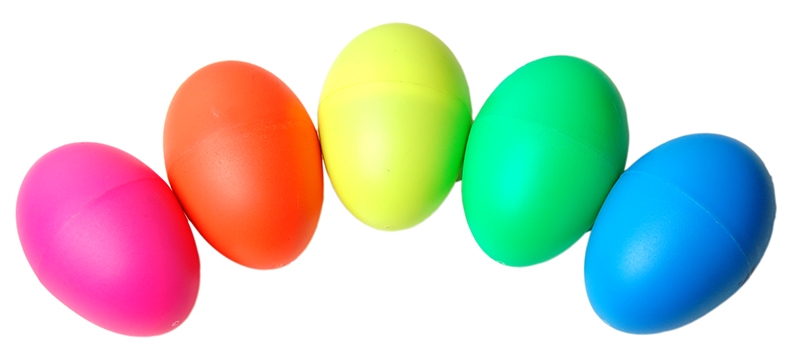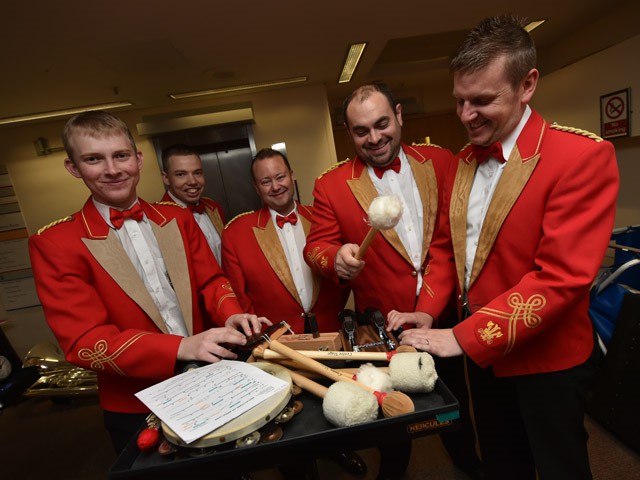
Deciding what to play is half the fun of being a percussionist...
Part 1: The Starter Kit
Percussionists, just like brass players, have to start somewhere.
It may be at the back of a dusty old bandroom on a cold January night, but that magical feeling of being able to play something exotic and influence just what music sounds like, never leaves you.
How you are helped to get from that first experience to perhaps even going on to enjoy a professional career is also something that occasionally needs a touch of magic to become a reality though.
Percussionists are a musical breed apart – especially in brass bands. They are also the one group of players who are usually left to their own devices to sort out problems.
Always ask! There are some brilliant percussion specialist shops full of experts willing to help – and players in the secret world of the Percussion Union too.
In writing this article memories came flooding back of my first rehearsal with Chepstow Town Band some 20 odd years ago.
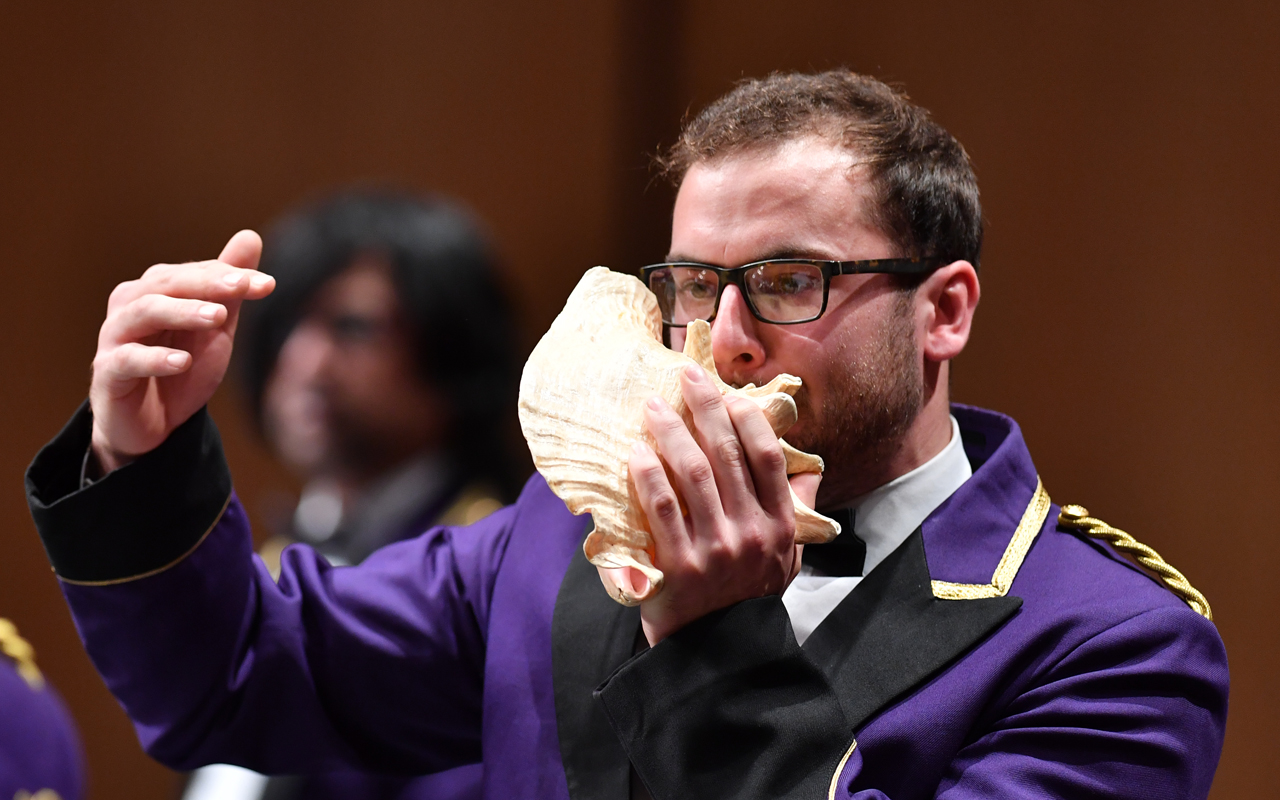
There is always something interesting to play on percussion...
Being super keen but having no sticks, beaters or mallets of my own, I decided to borrow a book from the local library – only to find a Blue Peter ‘do it yourself’ manual on how to make timpani mallets out of lengths of dowel with tennis balls glued on top!
Thankfully, things have improved since then (although I do wonder what they would sound like) - but it’s still good to get a decent working knowledge of just what you might need in your stick bag as you progress.
This is just a bit of a personal guide – so please feel free to experiment yourselves.
These are the first few steps I would recommend for a young player who has started to enjoy their percussion playing.
Always ask! There are some brilliant percussion specialist shops full of experts willing to help – and players in the secret world of the Percussion Union too.
Get in touch and go along and find out more - and don’t be afraid to try everything out!
Search out playing guides and tips on the internet: There are some brilliant self-help guides from fantastic players.
Drum sticks:
I recommend something like the Nova range by Vic Firth - affordable, sturdy and ideal to do just about any job required.
If your budget does stretch a little bit further then go for the industry standard sticks made by Vic Firth, Pro Mark or Vatar etc. However, to get yourself started you don't need to be shelling out £10+ for top quality stuff.
I would recommend staying away from wrapped coloured drum sticks though. They may look fancy, but some are made of material which may damage your equipment.
The 5 series would be ideal for brass band kit playing and general use (the 7 series tends to favour lighter work, whilst the 2 is a favourite of wanna-be rock drummers)
Drum sticks come in different weights and thickness. As a general rule look out for the numbers 2, 5 and 7 (although they do range from 1-9) and the letters, A, B and C.
The higher the number the lighter the stick - so a 5B is thicker than a 5A.
The 5 series would be ideal for brass band kit playing and general use (the 7 series tends to favour lighter work, whilst the 2 is a favourite of wanna-be rock drummers)
Go for: 5A or 5B Nova by Vic Firth: £4.50 - £5.50
Mark you sticks!
A little bit of sticky tape around the handle or felt tip pen with your name and that 5B number ensures you are not left wondering what on earth you are looking for when under pressure.
An elastic band to keep the right pairs together when you put them away also saves time.
Brushes:
At some time in your early brass band career you will come across a classic concert piece like ‘Swinging Safari’ and countless others that need a nice light touch and a sense of style.
You can pick up non-branded brushes relatively cheap, and these should see you through a few summer seasons to get you on your way.
I would recommend going for retractable wire brushes (they also make the classic sound) instead of plastic, which although OK can split and can be of varying quality.
Prices can range drastically, but most decent sets can be found from around the £15.00 – £20.00 mark.
Practise making different sounds but shortening or lengthening the brushes. You will be surprised just what you can achieve.
Glockenspiel/Xylophone Mallets:
Not everyone may want to become a tuned percussionist, but despite the practice needed, it’s great fun!
If you are starting out, then why not have a dabble - so I’m going to recommend 1 pair of glockenspiel mallets and 1 pair of xylophone mallets. Treat them with a bit of love and care and they will last for many years.
If you only want to purchase one pair then go for the dual purpose Chalklin MSGJ2 or MSGJ4 xylophone mallets, as these can be used on both instruments.
If your budget can stretch to a pair of glockenspiel mallets, then you won't go far wrong with Chalklin MS2 or MSJP.
However I would not recommend using these on xylophones as the plastic head to far harder.
Chalklin MS2 glockenspiel mallets: £18.00 - £23.00
Chalklin MSGJ2 or MSGJ4 xylophone mallets: £21.00 - £24.00
Also invest in a good practice book to help you along. Your percussion specialist can tell you what you need.
Suspended Cymbal Mallets/Soft sticks:
Every player will need to play some nice smooth rolls on a suspended cymbal - from a test-piece to a Disney bandstand favourite.
Some players will choose to pull out their timp sticks to use, but I would recommend considering buying some specific mallets. Keep your timp sticks for playing the timps!
These sticks are not cheap, but are worth investing in as they do make a great sound on a decent cymbal!
If you are on a budget then Percussion Plus produce several options between £16.00 - £20.00, but if you pay a bit extra for something like an Acoustic GJ2 General (Medium) 'Beckan' Cymbal Mallets (£26.00 approx) you can come up trumps.
Some players will choose to pull out their timp sticks to use, but I would recommend considering buying some specific mallets. Keep your timp sticks for playing the timps!
Don’t be afraid!
The sounds you make are every bit as important as the principal cornet or solo trombone. Just because you are at the back of the band doesn’t mean you shouldn’t be heard.
Timpani Mallets:
Everyone loves playing the timps - although be careful, as just given them a whack may be the worst thing you can do!
I’m going to suggest two different weights: A ‘hard’ mallet and a ‘medium’ set.
I appreciate you may only need the one pair to start off with, so if I was going to choose, I would go for a pair of the ‘hard’ set.
Prices, designs and quality vary of course, but something like a pair of Chalklin MS22 will be ideal.
However, make sure you look after them - so don’t through away the plastic bag they tend to come in as it protects the heads.
Chalklin MS22 Timpani Hard Mallets: £23.00 - £25.00
Learn how to roll. Get someone to show you properly and keep on rolling until it’s as smooth as silk. It sounds brilliant!
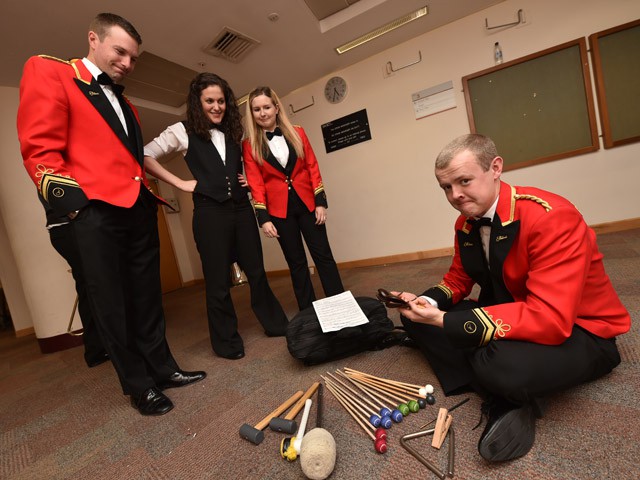
Always look cool with your kit bag stuff...
Stick Bag:
So now you have your sticks you just need something to carry them around in and look cool into the bargain.
All percussionists are super duper cool, so never turn up with your sticks in a shopping bag!
There are so many out there to choose from, but something like a Pearl Canvas stick bag comes in around £15.00 or for a bit more a Sabian Arena stick bag can be found for £25.00 or so.
Make sure they are sturdy, have a good zip or fastener, have plenty of pockets and space - and even have somehwere to put your name on!
All percussionists are super duper cool, so never turn up with your sticks in a shopping bag!
Bits and Bobs:
As a percussion player you will always be asked to add extra colour, texture and effect to performances (even if it is to cover up the brass playing!) – from conch shells (see above) and dustbin lids to boomwhackers and cajons.
Just to get you started though it’s always good to have a couple of these on you...
The triangle, tambourine and woodblock are percussion essentials and the egg shakers make a great sound and are fun to play.
The dusters are there to make sure you keep the noise levels down when you have to place things on seats or the floor, and every percussion player needs plenty of sticky tape – it’s the perfect emergency ‘fix-it’.
Triangle and Beater: £7.00 - £10.00
Egg Shakers: £5.00 - £7.00
Plastic Tambourine: £10.00 - £20.00
Woodblock: £22.00 - £25.00
Dusters: £1.00 - £2.00
Tape: £1.00 - £2.00
Be organised! Check your music, find out what’s needed and have it close to hand.
In Part 2, I’ll explore adding a few more things to your stick bag on expanding on your initial collection further.
Author:
James Andrews is the principal percussionist with Cory Band.




